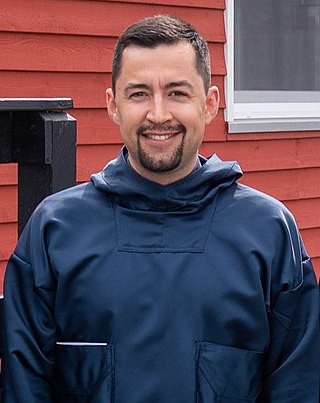Investigations and reaction

In 2017, Naja Lyberth was among the first people to publicly discuss the spiral campaign; she wrote on Facebook about her experiences. [7] In 2022, the podcast Spiralkampagnen ("Spiral Campaign"), hosted by the Danish Broadcasting Corporation, [10] uncovered the campaign's records. [3] Following the podcast's release that year, politicians and human rights organisations began calling for investigations; the party Naleraq wrote legislation to investigate. [11] On 2 June, the Inatsisartut (Greenlandic parliament) voted to demand that the Danish government investigate the history of the campaign. [12] Later that year, the Danish and Greenlandic governments agreed to begin a two-year investigation. [13] It seeks to document the background of the birth control campaign; its implementation, including Greenlandic government involvement; the reasons the campaign began and continued; and other fertility control programs until 1991. [14] The investigation formally began in May 2023 and is scheduled for completion in May 2025. [15] The investigators are all women from Greenland and Denmark. [15]
The Inuit Ataqatigiit Minister of Health, Mimi Karlsen, asked women affected by the fertility control program to call Tusaannga, a social services and support hotline. [10] Aki-Matilda Høegh-Dam, a Siumut member of the Folketing (Danish parliament) called the campaign genocide. [4] She stated that in the Danish desire to modernise Greenland, elevating the material conditions of its residents was too expensive, so the government instituted a program to commit genocide on the population. [16] Danish lawyer Mads Pramming likened the case to the Little Danes experiment, a 1951 Danish operation that resettled 22 Greenlandic children in Denmark. [17] Lyberth said in 2022 that the campaign stole her virginity, caused her pain, may have caused complications for her later in life, and continued to traumatise her into adulthood. [7] According to Greenland's Human Rights Council, regulations regarding family life and privacy were violated. [3]
Some activists have criticised the limited scope of the campaign, which extends only to 1991. In December 2022, BBC News noted that numerous women and girls allege that this campaign continued after 1991. [18] Karlsen said in a BBC interview that she would forward allegations to the Greenlandic medical authorities to see if they are true and if they reflect widespread practises related to the spiral case. [18] At least nine women have reported post-1991 nonconsensual IUD placements to the government; medical investigators found four operations occurred without consent (three had documented consent), eight of the nine cases allegedly happened after the year 2000, and most happened while the women were under anesthesia for induced abortions. [19] Nivi Olsen, a Demokraatit member of the Inatsisartut, has called for the investigation to be broadened to include post-1991 birth control measures. [19]
In October 2023, Lyberth and 66 other women sued the Danish government for DKK 300,000 each (approximately US$ 47695). [20]
In March 2024, 143 women sued the Danish government and demanded 43 millioner kroner, in total. [21]








